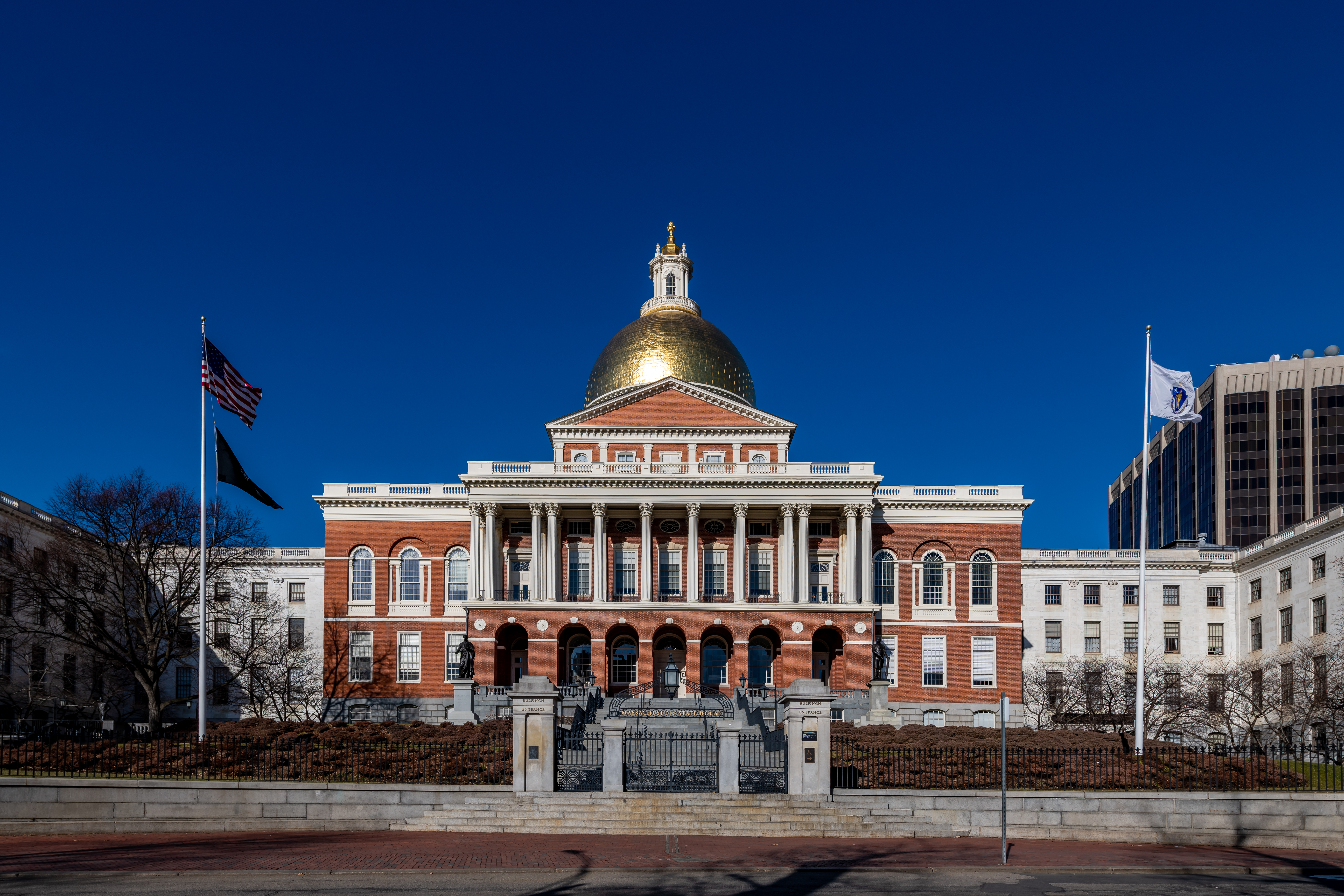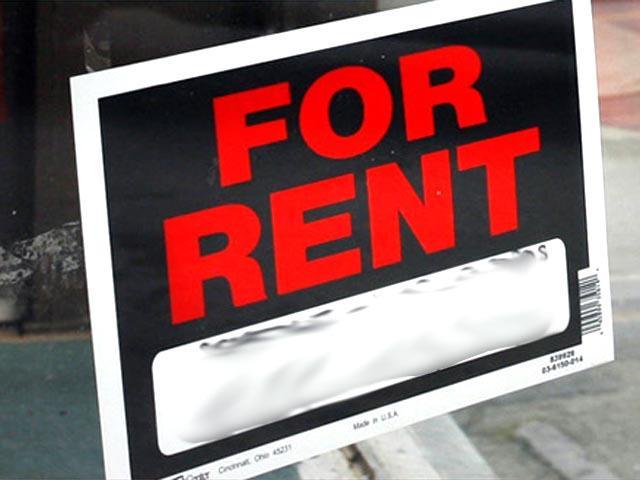Gov. Maura Healey on Wednesday unveiled her first state budget proposal, a $55.5 billion package described as a "downpayment" on the governor's goals of making Massachusetts a more affordable place to live, driving the state's decarbonization push and addressing the impacts of climate change, and preparing students for careers in an evolving economy.
The bottom line for fiscal year 2024 spending represents a 4.1% increase over the current year's budget as originally adopted last summer, exactly the same growth rate that the administration and lawmakers expect to see from state revenues in fiscal 2024 when accounting for $1 billion from the state's new income surtax.
WATCH ANYTIME FOR FREE
>Stream NBC10 Boston news for free, 24/7, wherever you are. |
"Public revenue does little good when people can't pay the rent, buy a house, heat their homes or hire child care. Our budget will change that and more," Healey said.
As she and Lt. Gov. Kim Driscoll prepared to unveil the Fiscal Year 2024 budget proposal on Beacon Hill, they announced Wednesday morning that it would include $20 million of funding to launch a program that would cover the cost for Massachusetts residents 25 and older to attend community college.
Get updates on what's happening in Boston to your inbox. Sign up for our >News Headlines newsletter.
The funding to create the MassReconnect program was announced during a news conference at Bunker Hill Community College, and would coincide with several other investments into education and workforce programs.
Healey's Fiscal Year 2024 budget recommendation was set to be filed on Wednesday afternoon.
The MassReconnect program would be for state residents 25 years old and older who have not earned a college degree or an industry credential. The program would offer students last-dollar support to cover the cost of tuition, fees, books and supplies, as well as services that would help achieve degree completion.
The program could potentially give 1.8 million Massachusetts residents who have a high school diploma or something equivalent the opportunity to get a degree. It also could help to bring students back who already have some college credits completed. According to the governor's office, there were nearly 696,000 Massachusetts residents who had some college credits, but hadn't finished a degree, as of July 2020. The majority of those people were over 25, according to the governor's office.
“Workforce shortages have impacted nearly all sectors of our economy, but we have an incredible opportunity before us to train the next generation of workers and increase opportunities for all,” Gov. Healey said in a news release. “The MassReconnect program, as well as the other investments in education and workforce development that we call for in our budget, will be transformative for hundreds of thousands of our residents. More students than ever before will be able to advance or complete their educations and set themselves up for a successful career in in-demand industries like health care, engineering, advanced manufacturing and tech.”
Another part of Healey's proposed budget is putting nearly $47 million toward Early College and Innovation Pathways, which would represent a $14.4 million expansion over Fiscal Year 2023. That program gives high school students in the state the chance to explore college and career pathways before graduation.
“Our administration is committed to providing more equitable education and career pathways, which will expand opportunity for all and strengthen our economy,” Lt. Gov. Driscoll said in a news release. “Community colleges, vocational and technical schools, apprenticeship programs and early college all provide meaningful opportunities for students to prepare for their future careers and set themselves up for success. We’re excited to launch MassReconnect and increase investments in many of the proven programs that are already serving our residents so well.”
The governor's proposed budget includes lines of funding for several other programs meant to bolster education and workforce, including these, as stated in a news release from the governor's office:
- $18 million, an increase of $4 million, for the Community College SUCCESS fund, which awards grants to community colleges to provide wraparound supports and services to improve outcomes for their most vulnerable populations, such as low-income, first-generation, minority, and disabled students and LGBTQ+ students.
- $17.9 million to support Career Technical Institutes, which help close skills training gaps by expanding access to vocational education.
- $5 million for Registered Apprenticeship Programs, quadrupling the investment to continue thousands of placements for registered apprentices in fiscal year 2024, building on the Governor’s proposed expansion of the apprenticeship tax credit. This is a $4 million increase from FY23.
- $1.15 million for the Healthcare Worker Training and AFL-CIO Workforce Development programs.
- $16.2 million for Youthworks, subsidizing wages for summer jobs for at-risk youth and facilitating career development for 14- to 25-year-olds to reduce juvenile delinquency and young adult homelessness. At this level, Youthworks anticipates connecting approximately 3,600 youth with employment during the summer and school year.
The $1 billion from the new surtax on income in excess of $1 million will go under Healey's plans towards education ($510 million) and transportation ($490 million) and Administration and Finance Secretary Matthew Gorzkowicz said that some of the investments the new governor's first budget proposes in those areas "would be very challenging" to have made without the new revenue stream.
On the education side, Healey is proposing to use the surtax money to pay for $100 million in child care grants to providers, $140 million in higher education capital funding, the $20 million free community college program the governor outlined earlier Wednesday, a $93 million expansion of a state scholarship program, a $59 million effort to stabilize tuition and fees at UMass and other public higher education institutions, and more.
Including the surtax investments, higher education would be in line for an increase of $371 million or 23 percent in the Healey budget. That includes a 3 percent increase to the base funding for each higher education segment, including the University of Massachusetts system.
"Governor Healey and Lt. Governor Driscoll have made a bold statement about the importance of the University of Massachusetts to the socio-economic future of the Commonwealth," UMass President Marty Meehan said. "These transformational investments would expand access to our world-class education and enhance the impact of our statewide research enterprise. On behalf of the UMass community of 74,000 students, 17,000 faculty and staff, and 500,000 alumni, we thank the Healey-Driscoll administration for their commitment to UMass."
For transportation, the surtax revenues would go towards $181 million in MBTA capital investments, launching a $100 million municipal partnership program, providing $100 million for highway bridge maintenance and preservation, and making $25 million available in regional transit funding and grants.
The budget plan also ratchets up funding for the Executive Office of Energy and Environmental Affairs, which sits at the center of the state's efforts to reduce carbon emissions to a net-zero level by 2050 and to electrify buildings, vehicles and more.
EEA would get $543.6 million under Healey's budget -- an increase of $105.2 million or 24 percent that would allow the secretariat to hire 240 new staff members. The administration said it would be the first time that an annual state budget dedicates at least 1% of its total to EEA.
After watching state revenues surge nearly 40% over the last two fiscal years, accommodating a nearly 11% increase in spending in the current budget, the administration and Legislature are preparing for a "slowcession" over the next year and a half -- not a downturn from the elevated revenue levels, but a definite handbrake on the eye-popping increases of recent years.
Ahead of Wednesday's official filing of the complete budget, Healey previewed many of the central elements of her first spending plan.
She told local officials she would propose a total of $8.36 billion for local aid programs, which the administration said would be a $635 million or 8.2% increase over the final budget Gov. Charlie Baker signed for fiscal 2023. Along with $1.26 billion for general government aid (a $24.6 million or 2% increase), cities and towns would share $6.585 billion in Chapter 70 school funding (a $586 million or 9.8% boost) under Healey's plan.
The Healey administration said the Chapter 70 total it proposed represents full funding of the Student Opportunity Act school finance reform law passed in 2019 and, if enacted, would be the largest increase since at least 1999. The fiscal 2024 state budget will mark the third budget cycle for the Student Opportunity Act, which aims to address education equity gaps with $1.5 billion in new funds rolled out over a seven-year span.
She also telegraphed her plan to ask lawmakers to allocate $20 million to create MassReconnect, a program that will "offer students last-dollar financial support to cover the cost of tuition, fees, books and supplies as well as provide funding for career and wraparound support services to encourage retention and degree-completion."
And Healey earlier this week also rolled out a tax relief and reform package that could swell to cost as much as $1 billion annually.



